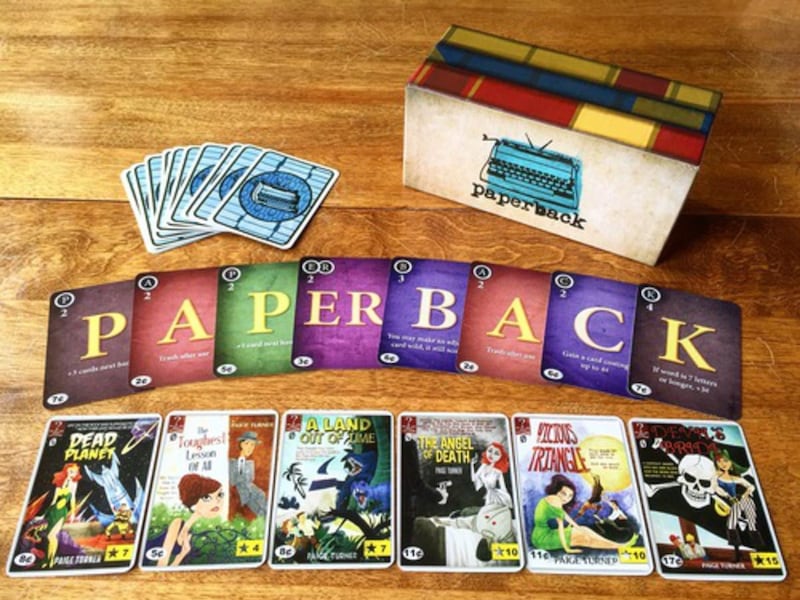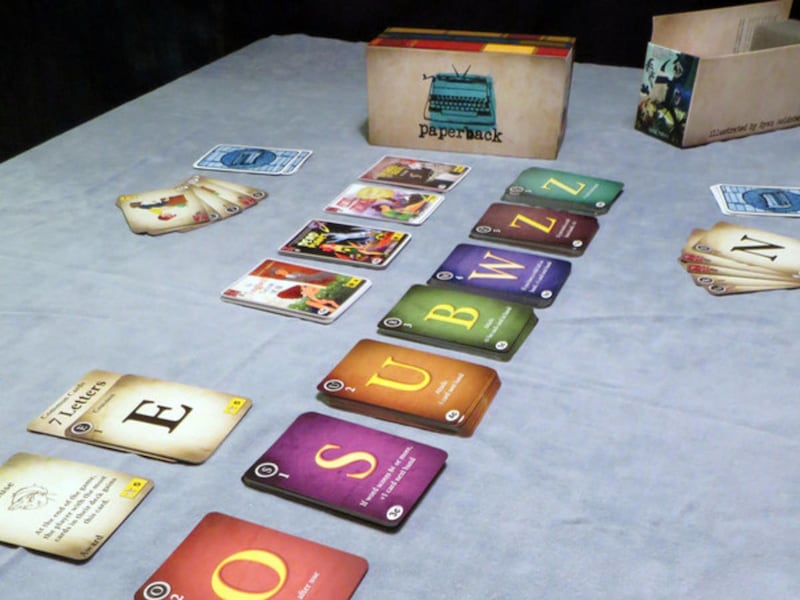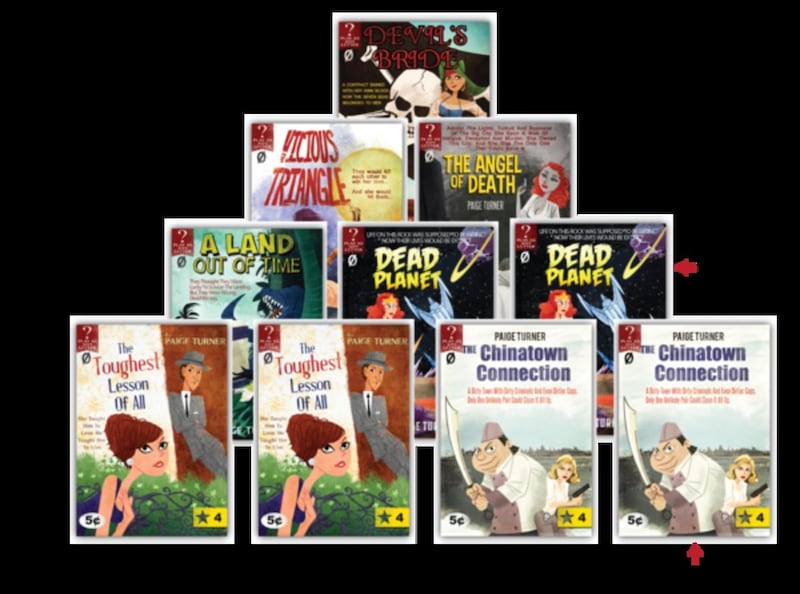Paperback is a card-based deck-building game by local game designer Tim Fowers. Players are aspiring novelists trying to write their ticket to fame. Will they rise to the top of the stack or end up in the garbage bin? This game accommodates two to five players and lasts about 45 minutes.
Back in March I reviewed the game Burgle Brothers by Ogden, Utah, designer Tim Fowers. It was a refreshing and innovative game with lots of tense moments. Paperback is something entirely different. A popular style of game in recent years is called a deck-building game. This is the heart of Paperback.
Deck-building involves starting with a deck of cards that allows certain actions each turn. Every turn new cards can be purchased and added to a player's hand to expand available options on future turns and players can make more powerful moves as time goes on. It's like slowly building an army in the game Risk or building a real estate empire in Monopoly.
In Paperback, players are trying to build words using letters printed on cards held each turn. Can a player make a word out of the letters O-O-T-N-P-I? How about the word option? By creating a word successfully, a player earns points to purchase more cards to add to his or her hand. I'd like to buy a vowel, please.
As a hand of cards grows, a player can buy more and more expensive cards that add unique letters and powers to the game. Wild cards can be purchased to add points or fame to the score of a player calculated at the end of the game. After some of the stacks of available cards are exhausted, the game ends.
The rules give a bunch of options that can be used to add variety to the game. There is even a cooperative mode where all players can come together to try to beat the game itself. There is a ton of replay value with this game.
Those who enjoy word games will absolutely love this game, and it will be a refreshing change from all of the other word games in the marketplace. The design is quite ingenious and will reward those who are creative and good with word development.
There is something particularly endearing about Paperback. Every turn is a thinking puzzle as players try to pull off the creation of a complex word that will score a lot of points so additional cards can be purchased. Gameplay is fast and interesting between turns as players watch each other, the available cards and plan for future turns. Proper names are not allowed.
Paperback is a great game and is highly recommended. Even those who don't necessarily like word games might like this game for its heavy deck-building mechanisms. It's fun and plays quick. Check out more here.
Be aware that Fowers is creating another game called Fugitive that is attracting a lot of attention. It is a two-player deduction card game full of close calls and great escapes that plays in 10 minutes. The kickstarter can be found here.
Question and answer session with local game designer Tim Fowers
What is your favorite board game, besides your own stuff?
Power Grid was the first game that really amazed me with its elegant complexity. It helped me start thinking about making my own games. It was later that Dominion and deck-building really caught my imagination.
What kind of work did you do before designing board games?
I was a game designer at Amazon for the last four years. Before that I made independent videogames.
How did you come up with the idea for Paperback?
It started as an effort to make a word game I enjoyed. The first version was a videogame called Clockwords. Over time it evolved into Paperback.
Can you talk about the timeline, development and any interesting facts about Paperback?
Once I realized it could be a physical game, I did four versions of the 200-card prototype in like two weeks. My wife was tired of helping me cut out cards. After that, it took three more months of polishing to finish the last 10 percent.
You mentioned that you are selling your games directly from your website. Can you explain some of the reasons why you made this decision?
I've seen people selling many thousands of copies a year of their game and still not able to live off of it. So I've been selling direct and spreading information about the games by word of mouth, and now my audience is large enough I'm able to live off of it.
Anything else of interest you would like to share?
Designing board games is fascinating. Board games are software that run on people. As a designer, all you have are instructions and a box of parts and you have to make it sing!





